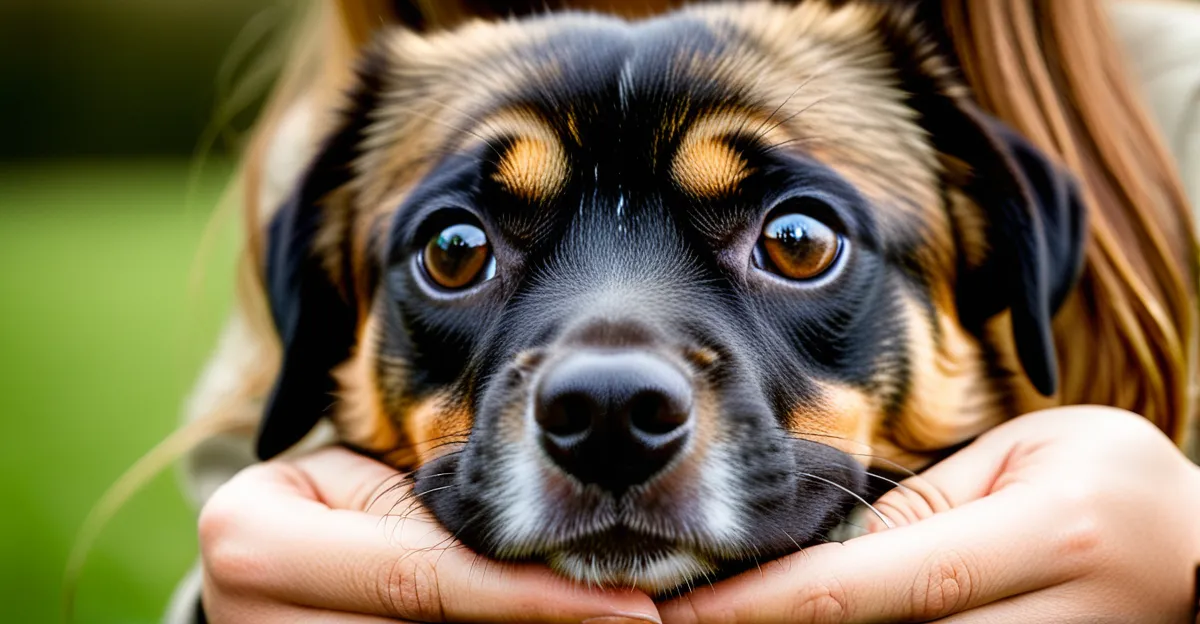Key Legal Requirements for Pet Adoption in the UK
Navigating UK pet adoption laws requires understanding critical legal responsibilities tied to pet ownership. Central to these is compliance with animal welfare legislation, which mandates that owners provide appropriate care, shelter, and treatment. Failure to meet these duties can result in penalties under UK law.
A fundamental legal requirement involves microchipping. Since April 2016, it is compulsory for all dogs in the UK to be microchipped to help trace ownership if a dog gets lost. This regulation extends to certain other pets in some areas, reflecting the growing emphasis on identification for animal safety.
Also to see : What are the UK’s top pet-friendly parks?
Pet licensing and registration also form part of the legal framework. While cats and other small animals are generally exempt from mandatory licensing, specific local authority rules may apply, especially for exotic or commercial breeding scenarios. Understanding these obligations helps ensure compliance and promotes responsible pet ownership.
Adhering to pet ownership regulations not only safeguards animal welfare but also protects owners from legal issues. These laws are designed to promote ethical adoption practices and support the well-being of pets throughout their lifecycle.
Additional reading : What Are the Best Ways to Integrate a New Pet into a UK Household?
Key Legal Requirements for Pet Adoption in the UK
Understanding UK pet adoption laws is crucial for responsible pet ownership. The cornerstone of these regulations lies in ensuring animal welfare, as set out in the Animal Welfare Act 2006, which mandates owners to provide adequate care, proper environment, and protection from harm. Compliance with pet ownership regulations not only supports animal well-being but also protects owners from legal consequences.
One of the most important legal responsibilities is microchipping. All dogs must be microchipped by the time they reach eight weeks of age or within 21 days of ownership transfer. This identification method helps in lost pet recovery and confirms ownership, making it a legal obligation under UK law. Failure to microchip can result in fines.
Additionally, pet licensing and registration are required for certain species, especially for animals like horses or non-domestic pets, to monitor welfare standards and prevent illegal trade. Local councils may enforce specific registration requirements, so it’s essential to consult relevant authorities.
In summary, adherence to UK pet adoption laws, including microchipping, licensing, and understanding legal responsibilities, forms the foundation for lawful and ethical pet ownership. This protects both pets and owners while promoting a safer community.
Navigating UK Pet Ownership Regulations
Understanding UK pet adoption laws means acknowledging specific rules designed to protect animals and owners alike. Among these, microchipping stands out as a vital legal responsibility. This requirement, mandated for all dogs since 2016, ensures that pets can be identified and traced back to their owners if lost. The system’s increasing adoption for other animals reflects its effectiveness in safeguarding pets.
When it comes to pet licensing, owners must recognize that regulations vary based on animal type and location. While many small pets are exempt, some local authorities impose licensing requirements, especially for exotic pets or commercial breeders. Awareness of these variations helps adhere to pet ownership regulations and avoid legal problems.
Compliance with the broader animal welfare legislation is at the core of all UK pet ownership rules. These laws emphasize the necessity to provide suitable living environments and proper care. Failure to meet these legal responsibilities can lead to enforcement actions, reinforcing the importance of thorough knowledge and adherence to UK pet adoption laws in daily pet care practices.
Key Legal Requirements for Pet Adoption in the UK
Understanding UK pet adoption laws requires a clear grasp of several critical legal responsibilities beyond microchipping and licensing. The Animal Welfare Act 2006 serves as the cornerstone for all pet ownership regulations, mandating that pet owners provide suitable living conditions, protection from pain or suffering, and proper diet. These legal responsibilities ensure pets’ long-term welfare and delay adoption until owners can meet these standards.
Microchipping is a pivotal legal obligation. Not only must dogs be microchipped by eight weeks or within 21 days of change of ownership, but failure to comply risks penalties. Microchipping links pets directly to their owners, facilitating the tracking and return of lost animals and deterring abandonment.
Pet licensing and registration are essential for certain species like horses or exotic animals, where local authorities enforce registration to monitor welfare and prevent illegal trade. While cats generally don’t require licenses, knowing specific local regulations is vital to maintain full legal compliance.
Together, these UK pet adoption laws create a framework designed to protect animals and ensure responsible ownership. Owners must actively engage with these legal requirements to secure a safe, lawful environment for newly adopted pets.
Key Legal Requirements for Pet Adoption in the UK
Adhering to UK pet adoption laws means fully understanding core legal responsibilities tied to animal welfare legislation. The Animal Welfare Act 2006 remains the foundational framework, requiring owners to ensure pets’ physical and psychological well-being through proper care and safe environments. These pet ownership regulations extend beyond ownership basics, detailing duties that protect animals from neglect or harm.
Mandatory microchipping of dogs, as stipulated by law, exemplifies a critical identification requirement. This obligation extends the traceability of pets, helping authorities reunite lost animals with owners swiftly. Failure to microchip risks fines, underscoring its legal weight. While microchipping is compulsory mainly for dogs, expanding practices include other pets to enhance overall welfare.
Regarding pet licensing, requirements vary. Certain species, especially horses and exotic pets, must be registered under local authority rules to monitor welfare and curb illegal trade. Although cats often lack licensing mandates, owners must verify regional regulations to remain compliant. Understanding these nuances within UK pet adoption laws facilitates responsible ownership and legal adherence, creating safeguards for both pets and owners.
Key Legal Requirements for Pet Adoption in the UK
The foundation of UK pet adoption laws lies in comprehensive animal welfare legislation, primarily the Animal Welfare Act 2006. This act establishes core legal responsibilities for owners, including providing adequate food, suitable shelter, and protection from harm. Understanding these pet ownership regulations is crucial for prospective adopters to meet legal and ethical standards.
Microchipping remains a pivotal legal requirement within UK pet ownership. Dogs must be microchipped by eight weeks old or within 21 days after ownership transfer. This mandatory identification aids in pet recovery and owner verification. Non-compliance can lead to fines, stressing the importance of timely microchipping.
Regarding pet licensing, regulations depend on species and locality. Horses and exotic animals are typically subject to licensing and registration to ensure welfare and prevent illegal trading. While cats often fall outside licensing mandates, local authorities may impose specific rules. Familiarity with these nuances in UK pet adoption laws helps owners maintain compliance with all necessary legal responsibilities and supports animal safety and control.
Key Legal Requirements for Pet Adoption in the UK
Understanding UK pet adoption laws requires familiarity with comprehensive animal welfare legislation. Central to this framework are legal responsibilities that safeguard animal well-being and enforce strict identification and registration rules.
Microchipping is a key component of these laws. According to UK regulations, all dogs must be microchipped by eight weeks of age or within 21 days of ownership transfer. This ensures traceability and enables lost pets to be quickly reunited with owners. Non-compliance with microchipping carries legal penalties, emphasizing its importance within pet ownership regulations.
In addition, pet licensing plays a vital role, varying by animal type and locality. Horses and exotic pets often require registration under local council rules designed to protect welfare and prevent illegal trade. Cats, while generally exempt, may be subject to local pet licensing mandates depending on regional legislation. It is thus essential for adopters to verify the specific requirements in their area.
These elements combine to form the backbone of UK pet adoption laws, ensuring responsible ownership and safeguarding both pets and owners within a regulated legal environment.
Key Legal Requirements for Pet Adoption in the UK
UK pet adoption laws emphasize strict compliance with animal welfare legislation, ensuring every adopter understands their legal responsibilities from the outset. Central to these laws is microchipping, mandated for all dogs by the Animal Welfare Act. Dogs must be microchipped by eight weeks of age or within 21 days after a change in ownership. This microchipping requirement allows authorities to identify and trace pets, aiding in recovery and discouraging abandonment. Failure to adhere to microchipping laws can result in fines, underscoring its critical role in pet identification.
Beyond microchipping, pet licensing and registration form essential components under pet ownership regulations. Licensing requirements vary by species and location. For example, horses and exotic animals often require registration under local authority rules, designed to monitor welfare standards and prevent illegal trade. Cats are generally exempt from licensing, but regional variations mean owners should consult relevant councils to ensure compliance.
Adopters must familiarize themselves with these specific UK pet adoption laws. Understanding microchipping rules and licensing obligations not only ensures lawful ownership but also supports the ongoing safety and welfare of pets throughout the UK.
Key Legal Requirements for Pet Adoption in the UK
The framework of UK pet adoption laws is rooted in robust animal welfare legislation, emphasizing clear legal responsibilities that all adopters must follow. Central to this is the mandatory microchipping of dogs by eight weeks of age or 21 days after ownership changes. This microchipping ensures reliable pet identification, which simplifies reunification if pets are lost and discourages abandonment, a vital aspect under pet ownership regulations. Non-compliance exposes owners to legal penalties, underscoring its significance.
Beyond identification, pet licensing plays a pivotal role, especially for animals like horses and exotic species. Licensing acts as a control tool, maintaining welfare standards and restricting illegal trade. While cats often fall outside general licensing mandates, regional rules can apply, so familiarising with local authority requirements is essential for lawful ownership.
These duties embody the core legal responsibilities within UK pet adoption laws, blending welfare with identification and registration rules. Together, they foster transparent, ethical, and responsible pet ownership, ensuring pets’ safety and owners’ compliance across the UK. Understanding and adhering to these interconnected regulations is fundamental for anyone engaged in pet adoption.
Key Legal Requirements for Pet Adoption in the UK
Understanding UK pet adoption laws means embracing key legal responsibilities embedded in animal welfare legislation. The Animal Welfare Act 2006 requires owners to safeguard pets from pain, suffering, and injury, setting the foundation for responsible pet ownership. This law ensures animals receive adequate care, including suitable living conditions and nutrition, central to pet ownership regulations.
A primary legal obligation is microchipping, mandatory for all dogs by eight weeks or within 21 days of ownership transfer. This identification system enables accurate pet tracking and facilitates speedy reunions if pets are lost. Failure to comply with microchipping laws results in fines, emphasizing its importance within UK regulations. Increasingly, microchipping extends to other species, reflecting growing efforts to enhance pet safety.
Pet licensing and registration complement legal frameworks, targeting species like horses and exotic animals. Such licensing, enforced by local authorities, helps monitor welfare and prevent illegal trade. Though cats typically lack licensing mandates, owners should confirm specific regional requirements to remain compliant. These combined legal mandates ensure that UK pet adoption laws protect pets’ welfare while supporting responsible and lawful ownership.
Key Legal Requirements for Pet Adoption in the UK
Understanding UK pet adoption laws means recognising integral legal responsibilities stemming from animal welfare legislation. Central to compliance is the mandatory microchipping of dogs, required by eight weeks of age or within 21 days of a change in ownership. This ensures pet identification, facilitates lost pet recovery, and deters abandonment. Failure to microchip can result in penalties, underlining its legal importance.
Besides microchipping, pet licensing and registration play crucial roles under pet ownership regulations. Licensing requirements predominantly apply to horses and exotic species, where local authorities enforce registration to monitor welfare and prevent illegal trade. While cats generally do not require licenses, regional variations necessitate checking local rules to avoid non-compliance.
These frameworks exist to uphold animal welfare and promote responsible ownership. Awareness of the interaction between microchipping, licensing, and broader UK pet adoption laws equips adopters to navigate legal landscapes effectively, safeguarding both pets and owners. Keeping informed about evolving regulations also helps maintain adherence to proper care standards within the UK’s jurisdiction.
Key Legal Requirements for Pet Adoption in the UK
Compliance with UK pet adoption laws hinges on understanding essential pet ownership regulations embedded in animal welfare legislation. The Animal Welfare Act 2006 mandates owners to provide suitable care, prevent suffering, and ensure pets’ overall well-being, forming the baseline of legal responsibilities.
A critical aspect involves microchipping, required by law for all dogs by eight weeks old or within 21 days of ownership transfer. This legal obligation guarantees effective pet identification, enabling authorities to reunite lost animals with their owners promptly. Non-compliance carries penalties, emphasizing the weight of this requirement within UK pet adoption laws.
In addition to identification, pet licensing and registration vary depending on species and locality. Horses and exotic pets typically require licenses enforced by local councils to monitor welfare and prevent illegal trade. While cats usually fall outside licensing rules, exemptions can differ by region, so adopters should verify local mandates under pet ownership regulations.
These intertwined legal responsibilities reflect the UK’s commitment to animal welfare, ensuring adoptive owners uphold ethical and lawful standards, promoting safety and accountability across pet care.








